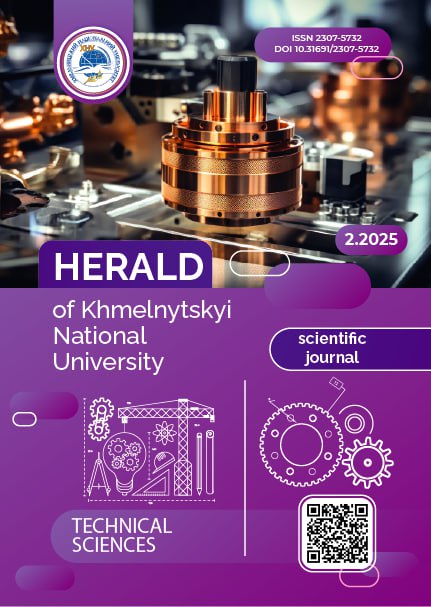PRINCIPLES OF CONTROL OF THE TECHNOLOGICAL PROCESS OF SPECIAL FOOTWEAR MANUFACTURING
DOI:
https://doi.org/10.31891/2307-5732-2025-349-77Keywords:
special footwear, materials, technological process, adhesion, automation, mechanical propertiesAbstract
The paper explores the technological features of the special footwear manufacturing process, focusing on the selection of materials, processing methods, and key factors affecting the final product quality. The study highlights the impact of various technological parameters on the operational characteristics of special footwear and considers modern approaches to improving production controllability. The research emphasizes the importance of optimizing adhesive bonding processes, mechanical assembly methods, and material selection to ensure durability, protection, and comfort. A comprehensive analysis of the technological process reveals that the production of special footwear requires a multi-stage approach that includes material preparation, cutting, forming, assembling, and finishing operations. The study evaluates the properties of different materials used in special footwear, such as natural leather, polyurethane, thermoplastic polyurethane, and polyvinyl chloride, to determine their suitability for various conditions. It is demonstrated that thermoplastic polyurethane (TPU) exhibits superior mechanical properties, making it a promising material for high-performance footwear soles.The paper also discusses the role of automated control systems and innovative manufacturing techniques, such as laser cutting, 3D printing, and RFID tracking, in enhancing production efficiency and reducing defects. Additionally, the research examines the effects of temperature and pressure parameters on adhesive bonding quality and mechanical durability. The findings suggest that precise control of production parameters can significantly enhance the reliability and functionality of special footwear. Future research directions include the development of new polymer composites with improved mechanical properties and wear resistance, as well as the integration of smart technologies for real-time process monitoring. The study concludes that advancements in material science and automation will play a crucial role in the evolution of special footwear manufacturing, ensuring higher product quality, safety, and sustainability.
Downloads
Published
Issue
Section
License
Copyright (c) 2025 ТЕТЯНА НАДОПТА, МИКОЛА СКИБА (Автор)

This work is licensed under a Creative Commons Attribution 4.0 International License.

